Meta AI Cuts 600 Jobs, Blocks ChatGPT, Even a Turing Award Winner Once Wanted to Quit
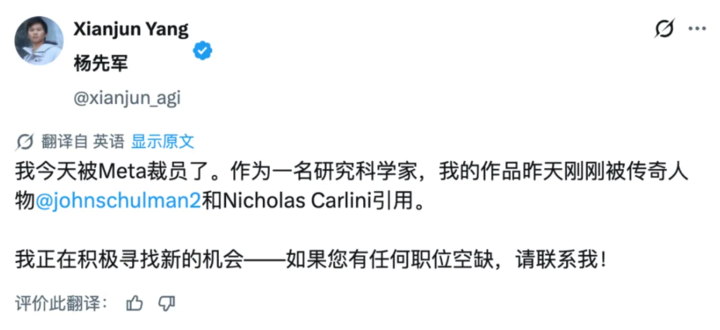
Meta’s AI Division: Layoffs, Restructuring, and Internal Tensions
Working inside Meta’s AI division lately has been more unpredictable than a roller coaster ride.
---
600 Employees Laid Off at MSL
This morning, 600 employees at Meta’s Super Intelligence Lab (MSL) received layoff notices.
To put that in perspective:
- MSL had ~3,000 staff
- This cut represents about 20% of the workforce
Former Meta research scientist Xianjun Yang posted on X (Twitter):
> “I was laid off by Meta today. As a research scientist, my work was just cited yesterday by legendary figures John Schulman and Nicholas Carlini. Now I’m actively searching for opportunities — please reach out if you have a vacancy!”

Meta has been:
- Aggressively poaching talent with multi-million-dollar packages
- Simultaneously “optimizing” long-standing staff
---
Internal Justification: “Greater Impact”
In an internal memo, Chief AI Officer Alexandr Wang framed the layoffs positively:
> “By downsizing the team, each individual will have greater responsibility and more impact.”
Translation: fewer people = faster execution.
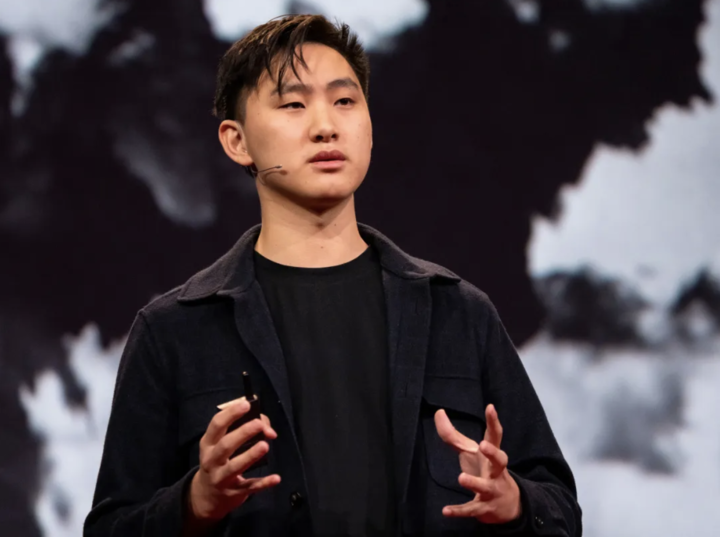
The main impacted teams:
- FAIR research division
- Product group
- Infrastructure team
Unaffected:
- TBD Lab — still hiring
Wang emphasized:
> “This is a very talented group — we want them contributing in other parts of the company.”
---
TBD Lab — Zuckerberg’s Secret Weapon
Location & Security
- Situated next to Mark Zuckerberg’s office
- Requires special access badges
Talent & Pay
- Recruits from OpenAI, Google, Apple
- Salaries reaching hundreds of millions annually
Mission
- Build superintelligence beyond human intellect
Recent high-profile hires:
- Ananya Kumar (former OpenAI research scientist)
- Andrew Tulloch (Thinking Machines co-founder)
---
FAIR’s Shift Away from Openness
Since September, FAIR papers must be reviewed by TBD Lab before publication.
Purpose:
- Reduce external sharing
- Increase internal product integration
- Prevent competitors from benefiting
This policy has frustrated Yann LeCun, FAIR co-founder and Turing Award laureate.
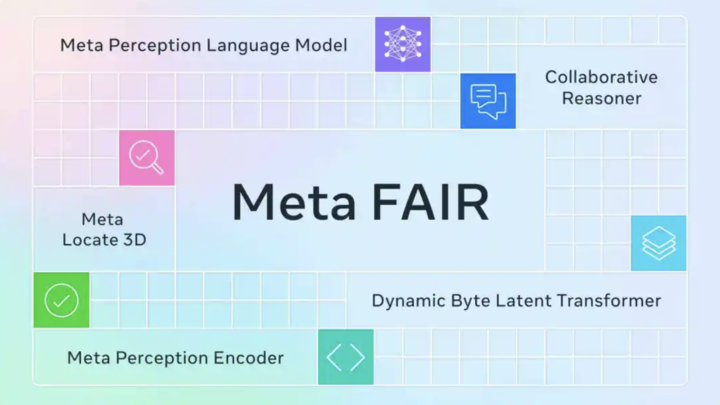
LeCun is reportedly considering stepping down from his Chief Scientist role at FAIR.
---
Cultural Conflict: Academic Freedom vs Corporate Secrecy
Over 12 years, FAIR focused on:
- Open collaboration
- Fundamental science
Now, that openness is curtailed.
LeCun’s curt response to a netizen’s joke about Llama 5 —
> “I don’t work on large language models — didn’t you hear?”
— reveals friction.
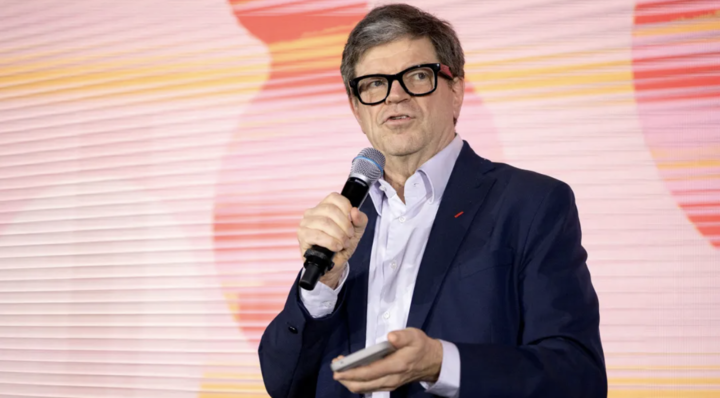
LeCun also met with AI heavyweight Andrew Ng to discuss:
- Open science
- Open source
- JEPA technology
- Ng publicly praised LeCun’s decades-long advocacy.
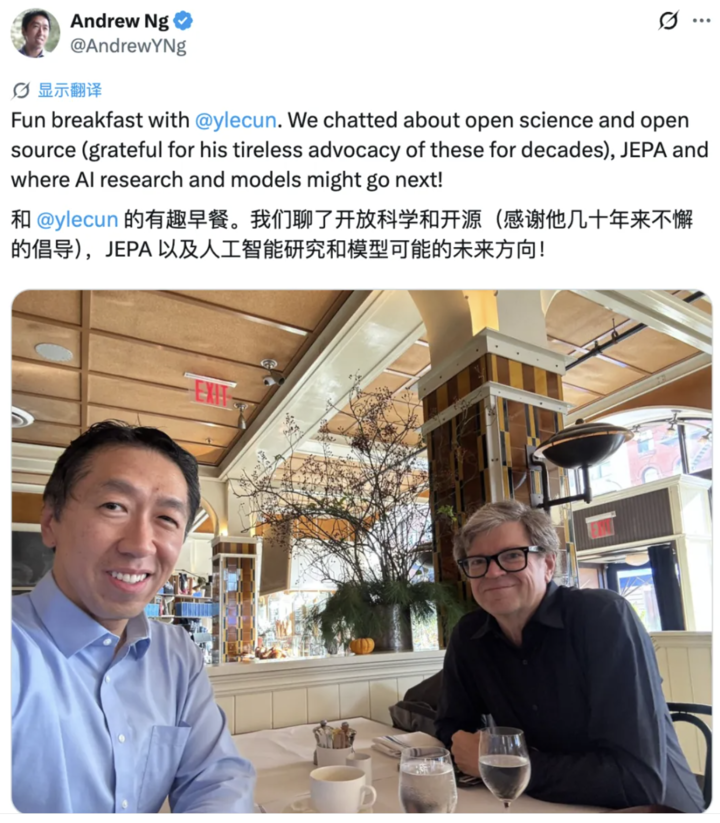
---
Four Reorganizations in Six Months
Timeline
- May — Split into AI Product + AGI Foundation teams
- July 1 — MSL formed to merge above teams
- Aug 19 — MSL split again into four:
- FAIR
- Superintelligence R&D
- Product group
- Infrastructure group
Result: frequent departmental shifts for employees.

---
Leadership Changes & Llama 4’s Influence
In July, Zhao Shengjia (former OpenAI) became MSL Chief Scientist, diminishing LeCun’s role.
The trigger: poor performance of Llama 4 and delayed release. Zuckerberg wanted a new approach.
---
Massive Spending & Recruitment
In June:
- Meta invested $14.3B in Scale AI
- Appointed Alexandr Wang as Chief AI Officer
Zuckerberg personally:
- Hosted AI talent at his home
- Offered packages worth millions or more
- Poached over 50 top researchers from OpenAI, Google, Microsoft
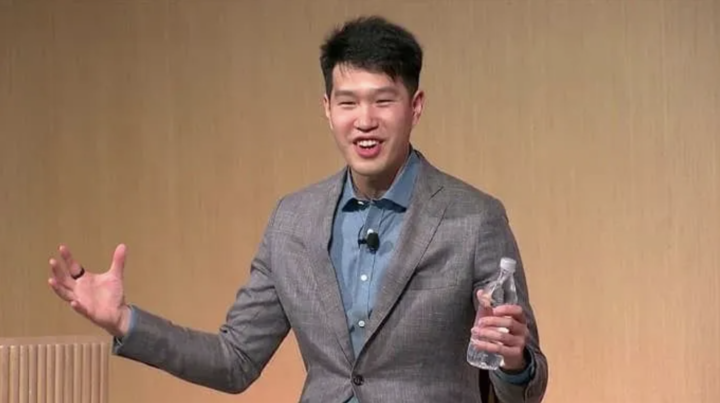
Even OpenAI’s Mark Chen quipped:
> “It feels like someone just broke into my house and stole things.”
---
High Turnover Among Recruits
Some star hires quickly left:
- Avi Verma, Ethan Knight returned to OpenAI
- Rishabh Agarwal said leaving TBD Lab was tough — but necessary
Reported atmosphere:
> “Territory grabbing, project grabbing, and credit stealing.”
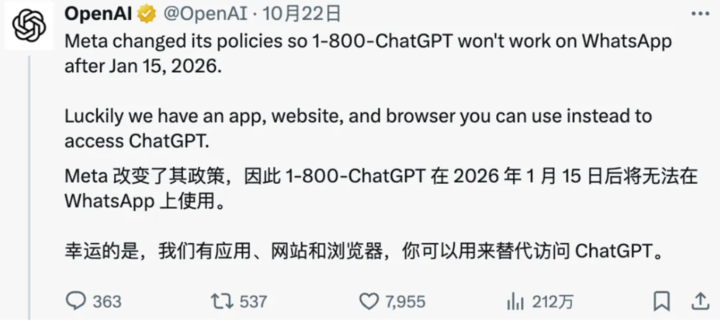
---
Competitive Moves: Banning ChatGPT from WhatsApp
Meta announced from next year, third-party chatbots (e.g., ChatGPT) can’t integrate with WhatsApp.
Reason given: misuse beyond customer service scope
OpenAI VP Kevin Weil strongly objected on social media.
---
Wang’s Public Confidence
Despite layoffs, Wang insisted:
> “We will continue hiring industry-leading AI professionals… Our goal is to operate more efficiently.”
Meta raised 2024 capex limit to $72B, most for AI.
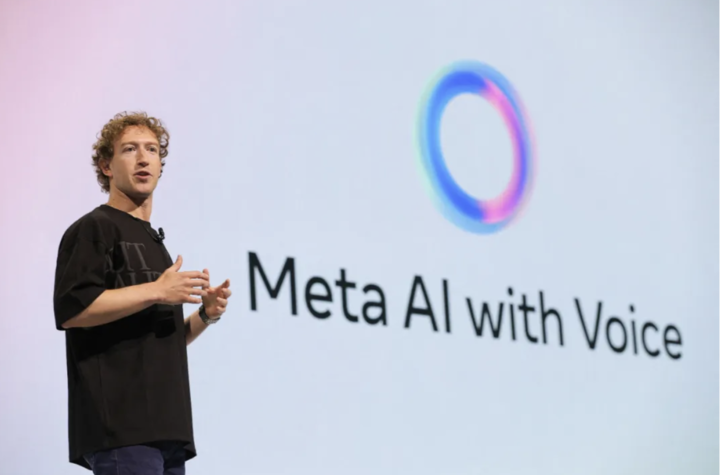
---
The Bigger Picture
Challenges for Meta:
- Balancing aggressive recruitment with cultural stability
- Managing frequent reorganizations
- Navigating reduced researcher freedom without losing talent trust
Alternative Models
Open ecosystems like AiToEarn官网 show how decentralized, open-source AI collaboration might mitigate risks:
- AI-powered content generation
- Cross-platform publishing
- Multi-channel monetization
- Analytics & model rankings (AI模型排名)
---
Public Perception
Meta’s AI strategy appears to be:
- Spend big to recruit elite talent
- Restructure often, cutting staff deemed non-core
- Restrict research freedom to protect competitive edge
Zuckerberg summed up the mindset:
> “Around here, people might say, ‘I’d prefer fewer people reporting to me, but more GPUs.’”
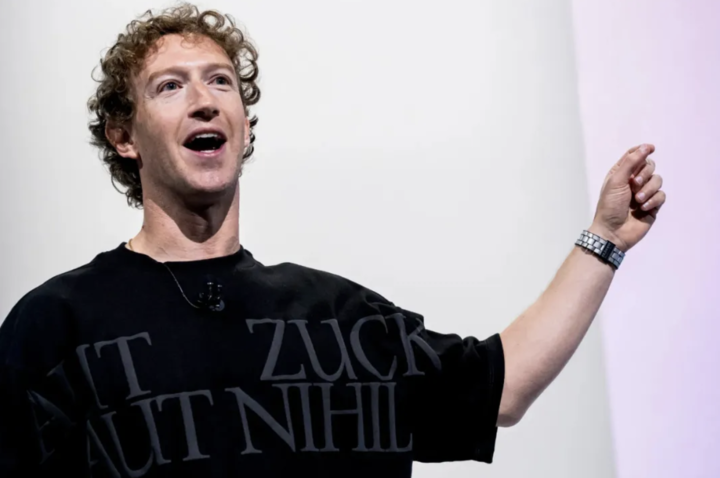
---
Culture vs Innovation
MSL co-head Nat Friedman in August:
- Aim: empower technical teams
- Reduce bureaucracy and meetings
The central question:
Can Meta’s high-cost investments yield genuine technical advantages amid ongoing turbulence?
For now:
- Meta has infrastructure and elite talent
- But internal friction & strategic swings remain unresolved
---
Bottom line:
Meta’s case illustrates a challenge many AI firms face — balancing innovation freedom with corporate control.
Platforms like AiToEarn官网 prove scalable AI innovation can thrive without sacrificing openness.




